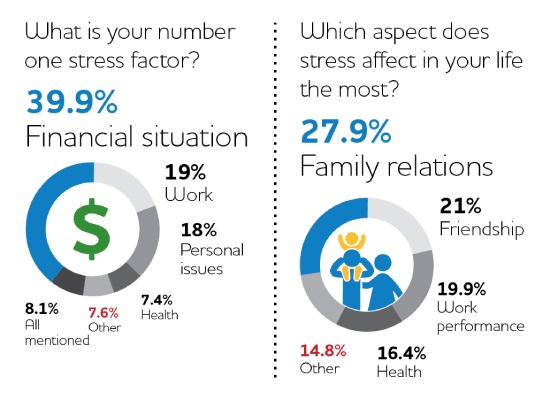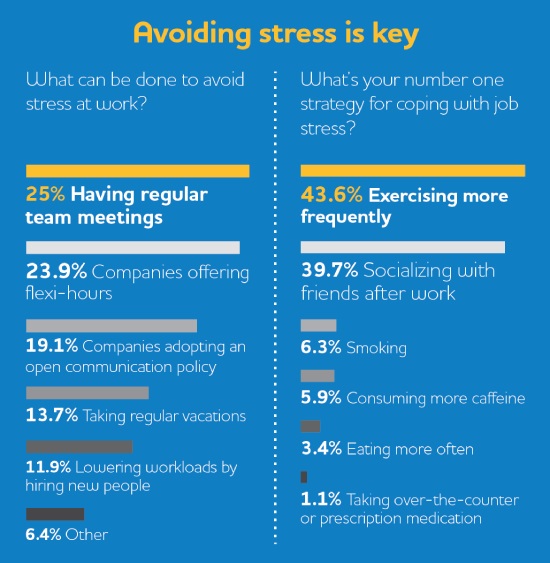
Your inbox is filling up faster than the clock is ticking, your deadlines like to fall on the same day, and your schedule leaves no room for thoroughness. As a result, you begin to feel overwhelmed, you feel that many tasks are out of your control, and your energy may begin to plummet. It is not uncommon to also experience muscle tension, insomnia, and pain under such pressuring circumstances. Many of us experience stress on daily basis and it can arise from many triggers including professional life.
Stress is among many factors that influence happiness and satisfaction in the workplace. Bayt.com conducted a poll to gauge the average level of stress as well as to gather more information about stress in the MENA workplace. Stress level is often related to performance on the job. So, it is vital for both employers and employees to have an understanding of the common causes and remedies of stress in order to better cope with it in a healthy manner.
How prevalent is Stress in the MENA workplace?
According to the Bayt.com stress poll, nearly half of respondents experience average levels of stress (44.7%) while 17.6% experience an extreme level of stress. It is worth mentioning that the far majority of respondents experience some type of stress at work and that for nearly half of them (52%) the stress level has risen in 2016 when compared to the past few years.

What are the main causes of stress in the MENA workplace?
Different personalities respond to job-related issues differently. Workers have different values, priorities, and objectives. Therefore, there are many factors that are thought of as stress-inducing. Mainly, the poll shows that 28.2% of respondents suggest that low-salaries are the cause of workplace stress. Take a look at the rest of the most common stress-triggering factors.

What are some methods to cope with workplace stress?
People have varying strategies when it comes to dealing with stress. However, it seems that time is commonly believed to be a key factor. 77.4% of poll takers believe that they could perform better if they were given more time. Although some respondents indicate that they resort to unhealthy coping methods (smoking 6.3% and consuming more caffeine 5.9%), most poll takers adopt healthier strategies such as exercising (43.6%) and open communication when they experience work-related stress. Below is a list of other adopted methods.

Stress is certainly present in the MENA workplace and is potentially on the rise. It is advised that employers build an understanding of their workers’ stress levels and causes in order to better help them cope and maintain the desired performance level.
View the full infographic here.